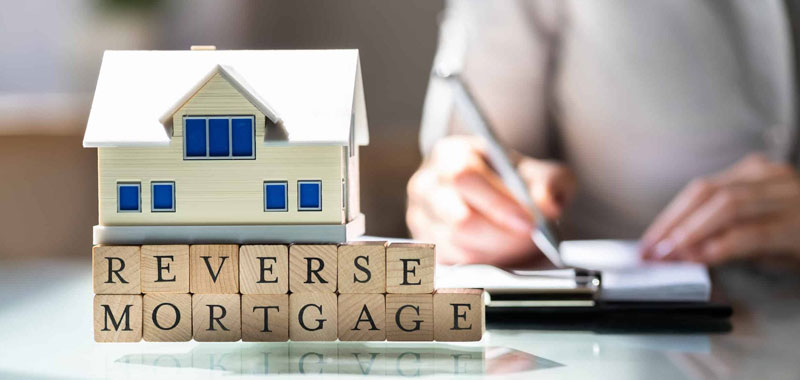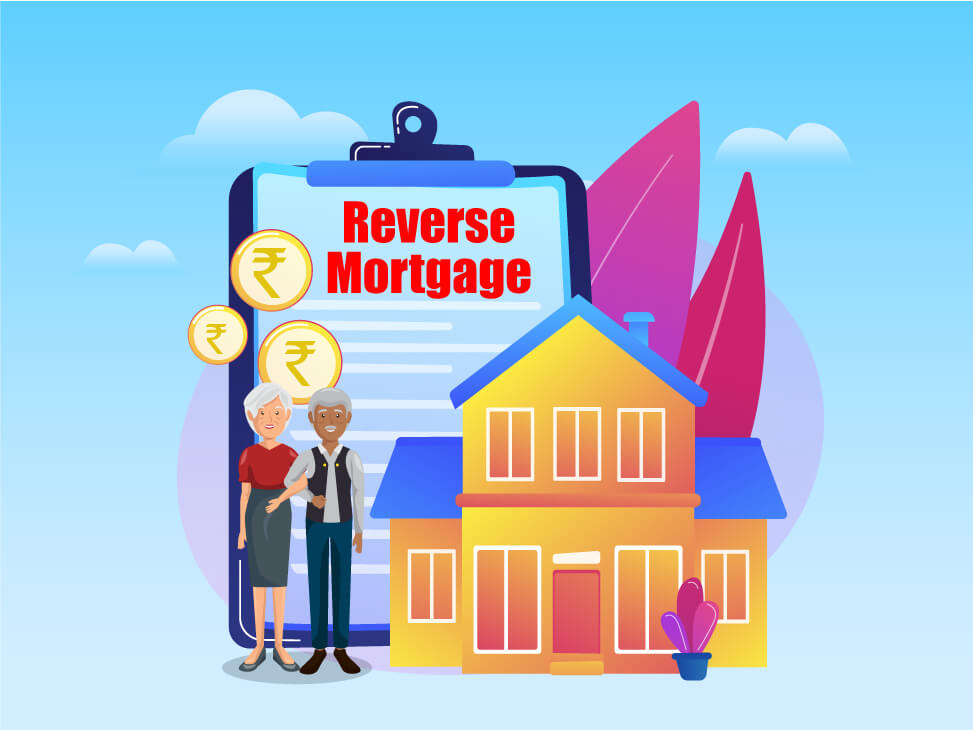What You Need to Know Before You Purchase Reverse Mortgage
What You Need to Know Before You Purchase Reverse Mortgage
Blog Article
Unlock Financial Freedom: Your Guide to Buying a Reverse Home Loan
Recognizing the details of reverse home mortgages is important for property owners aged 62 and older seeking monetary flexibility. As you consider this alternative, it is important to realize not only exactly how it works but also the implications it may have on your economic future.
What Is a Reverse Home Loan?

The fundamental charm of a reverse home loan exists in its prospective to enhance economic flexibility throughout retired life. Home owners can use the funds for numerous functions, consisting of clinical expenses, home enhancements, or daily living expenses, hence providing a safety and security web throughout a critical point of life.
It is vital to recognize that while a reverse home loan allows for increased capital, it additionally lowers the equity in the home over time. As passion gathers on the impressive funding balance, it is essential for possible consumers to thoroughly consider their long-lasting economic plans. Consulting with a reverse mortgage or a monetary consultant specialist can give valuable understandings into whether this option aligns with an individual's economic objectives and scenarios.
Qualification Demands
Recognizing the qualification needs for a reverse home mortgage is essential for property owners considering this financial choice. To certify, applicants have to be at the very least 62 years of ages, as this age standard allows elders to accessibility home equity without month-to-month home loan repayments. Additionally, the house owner should occupy the residence as their main residence, which can include single-family homes, specific condos, and produced homes meeting particular guidelines.
Equity in the home is one more essential demand; property owners generally require to have a considerable quantity of equity, which can be identified via an assessment. The quantity of equity offered will straight affect the reverse home loan quantity. Candidates should show the capability to preserve the home, including covering property tax obligations, property owners insurance coverage, and upkeep costs, making sure the property stays in great problem.
In addition, prospective customers should undergo a monetary analysis to examine their income, credit scores history, and general financial circumstance. This assessment aids lending institutions identify the applicant's capacity to fulfill recurring commitments associated with the residential or commercial property. Fulfilling these demands is important for safeguarding a reverse mortgage and guaranteeing a smooth economic change.
Advantages of Reverse Home Mortgages
Many advantages make reverse home loans an enticing alternative for seniors aiming to enhance their monetary flexibility. purchase reverse mortgage. Among the primary advantages is the ability to transform home equity into money without the need for regular monthly mortgage repayments. This attribute allows senior citizens to gain access to funds for various needs, such as clinical expenditures, home enhancements, or daily living expenses, therefore relieving financial anxiety
Additionally, reverse home loans give a security internet; seniors can remain to reside in their homes for as lengthy as they meet the funding demands, fostering security pop over to this web-site during retired life. The profits from a reverse mortgage can also be utilized to postpone Social Security advantages, potentially resulting in greater payments later.
Furthermore, reverse home mortgages are non-recourse fundings, meaning that debtors will never ever owe greater than the home's worth at the time of sale, shielding them and their heirs from financial obligation. Finally, the funds received from a reverse mortgage are typically tax-free, including an additional layer of economic relief. Overall, these benefits setting reverse home loans as a practical service for elders seeking to boost their monetary scenario while maintaining their treasured home environment.

Charges and expenses Entailed
When taking into consideration a reverse home loan, it's vital to be mindful of the various expenses and fees that can affect the general economic image. Comprehending these expenses is important for making an click to find out more educated decision concerning whether this financial product is ideal for you.
Among the key expenses connected with a reverse mortgage is the origination cost, which can vary by lender however normally varies from 0.5% to 2% of the home's appraised value. Additionally, property owners must expect closing prices, which may include title insurance coverage, assessment fees, and credit report fees, typically totaling up to numerous thousand dollars.
One more considerable expenditure is home loan insurance premiums (MIP), which secure the lender versus losses. This cost is usually 2% of the home's value at closing, with an ongoing yearly premium of 0.5% of the continuing to be financing balance.
Last but not least, it is very important to consider continuous prices, such as real estate tax, house owner's insurance policy, and upkeep, as the customer remains in charge of these costs. By thoroughly reviewing these fees and costs, house owners can better assess the financial ramifications of going after a reverse home mortgage.
Actions to Start
Starting with a reverse mortgage includes numerous key actions that can assist streamline the procedure and guarantee you make informed choices. Assess your financial scenario and identify if a reverse home loan lines up with your lasting goals. This consists of evaluating your home equity, current debts, and the necessity for added earnings.
Following, research study different lending institutions and their offerings. Try to find trustworthy institutions with positive evaluations, clear fee structures, and competitive interest prices. It's vital to contrast conditions to find the very best fit for your requirements.
After picking a loan provider, you'll need to from this source finish an in-depth application procedure, which typically requires paperwork of revenue, assets, and residential property information. Take part in a therapy session with a HUD-approved therapist, that will provide understandings into the implications and duties of a reverse home mortgage.
Conclusion
In verdict, reverse home mortgages provide a practical option for seniors looking for to improve their economic security throughout retirement. By converting home equity into easily accessible funds, house owners aged 62 and older can resolve different monetary requirements without the pressure of monthly payments.
Recognizing the intricacies of reverse home mortgages is important for home owners aged 62 and older seeking financial flexibility.A reverse home loan is an economic product developed largely for home owners aged 62 and older, allowing them to convert a section of their home equity right into cash - purchase reverse mortgage. Consulting with a reverse mortgage or a monetary expert expert can provide important insights right into whether this option aligns with a person's financial goals and situations
Furthermore, reverse home loans are non-recourse fundings, suggesting that borrowers will certainly never ever owe more than the home's worth at the time of sale, shielding them and their successors from economic obligation. Overall, these benefits setting reverse mortgages as a useful option for elders seeking to improve their financial circumstance while keeping their cherished home setting.
Report this page